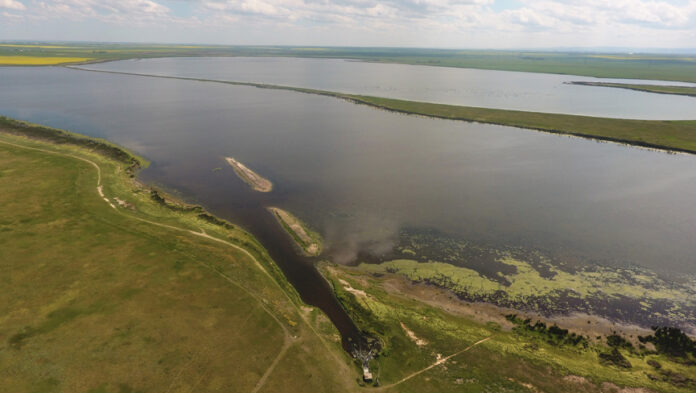University of Lethbridge researchers will study the Frank Lake wetlands in High river to better understand the impacts of land use on the health of the Little Bow watershed.
The project is funded by Cargill Limited and the Natural Sciences and Engineering Research Council of Canada Alliance program. With total funds of $1.5 million, the team will embark on a five-year project.
Drs. Matt Bogard, Steve Wiseman and Larry Flanagan from ULethbridge will be joined by two researchers, Drs. Kerri Finlay from the University of Regina and Markus Brinkmann from the University of Saskatchewan. Partners in the project include Cargill Limited and the Highwood Management Plan Public Advisory Committee, with support from ULethbridge Professor Emeritus Dr. Stewart Rood and Dr. Peter Leavitt from the University of Regina.
The project will focus on the role the Frank Lake wetland plays in processing waste water, according to Bogard, who is an assistant professor of biology and Canada Research Chair. “We want to provide all stakeholders with scientific knowledge and data to help manage the watershed as best as possible,” he said.
Frank Lake is a restored wetland six kilometres east of High River, managed by Ducks Unlimited Canada. It is listed as an important bird area and treated wastewater from both High River and Cargill Limited is released into it to maintain water levels. The concern is how long it can sustain current levels of treatment and whether actions can be taken to enhance its functioning, according to the UNiversity of Lethbridge.
“Part of the goal of this project is to tease apart the influence of different land uses on watershed health, so that future management decisions can better evaluate impacts of individual land uses,” Bogard said. “Much of the water used by humanity is released back into the environment as wastewater, so this project has major implications for watershed and wastewater management worldwide.”
The wetland is also part of a larger watershed. It flows periodically into the Little Bow River and eventually joins the Oldman River. Along the way, other communities located within the watershed add waste and surrounding land uses include feedlot operations. By studying the whole basin, the researchers hope to gain an understanding of how the entire system works. The researchers will examine nutrient cycling in the watershed, water quality, aquatic ecology, health of the wetland and surrounding vegetation and effluent toxicity, according to the university.







